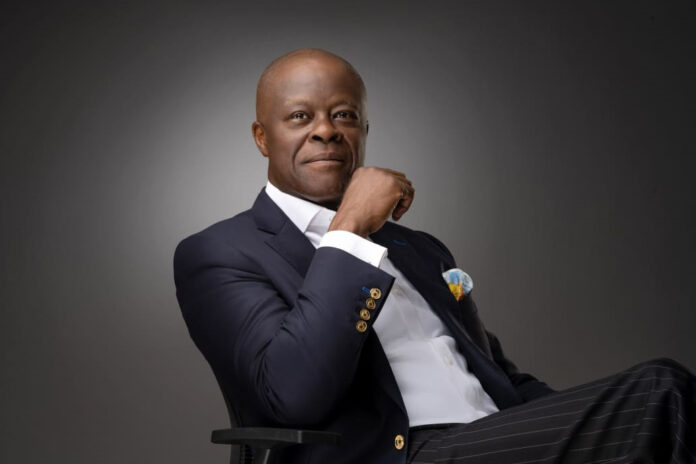Tinubu’s Economic Diplomacy Blooming, Says Minister
The Minister of Finance and Coordinating Minister of the Economy, Mr Wale Edun, says the economic diplomacy carried out by President Bola Tinubu around the world is generating the desired results.
Edun said the president had embarked on fruitful economic diplomacy on all the continents: Brazil in South America; China and India in Asia, as well as Germany and France in Europe, and elsewhere.
He said, as a follow up on economic diplomacy, he led a delegation to Riyadh, Saudi Arabia, recently, to ensure the success of the developing relationship between him and Mohammed bin Salman, the Crown Prince.
The delegation included Sen. Abubakar Bagudu, the Minister of Budget and National Planning and Mr Wale Tinubu, a member of the Presidential Economic Coordination Council.
Others were: Ms Sanyade Okoli, Special Adviser to the President on Finance and the Economy and Mr Muhammad Abdullahi, Deputy Governor, Central Bank of Nigeria (Economic Policy).
The delegation held talks with Saudi EXIM Bank, the Saudi Development Fund, and the Saudi Agricultural and Livestock Investment Company (SALIC) to advance ongoing conversations about their investments in Nigeria.
“Twice in the last year, Mr President has been in Saudi Arabia, had meetings with the Crown Prince, and talked about trade, economic cooperation, financial cooperation, and collaboration.
“We just followed up on some of those leads across the various opportunities for foreign direct investment, trade partnerships, and even financial investment,” said Edun.
He said the Saudi Agricultural Livestock Investment Company had on December 23 increased its investment in Olam by $1.2 billion.
Edun said the president had taken steps to stabilise the Nigerian macroeconomic environment to encourage such investments in the country.
The minister said the takeaways from the visit included prospective investments, foreign exchange, and jobs for Nigerians.
“If you look at the demographics of Saudi Arabia, to the extent that they are investing abroad, they are not going to be exporting their people, they’re not like some of the other big, populous countries of Asia.
“So, clearly, where they invest, that is jobs for Nigerians. That’s the simplest way I would put it.
“The Olam transaction was a long time in the works; it was first discussed at the first Business Council Meeting held last year in Saudi Arabia, and it materialised this year,” said Edun.
Also speaking with State House correspondents, Bagudu said the Saudis saw in Tinubu somebody who was changing his country, just like they had transformed their own country.
He said Salman, the Crown Prince of Saudi Arabia, was faced with a people who believed they were wealthy and felt entitled.
“He came as a leader and he said, well, you might be rich, you might be entitled, but our economy is not passing in the right direction.
“So, he introduced reform measures, which were unusual then in Saudi Arabia; removal of oil subsidies, and introduction of VAT legislation, among others.
“I have a receipt here, when I ate food, I noticed that the VAT was 15 per cent. But today, Saudi Arabia is turning into a wonderland, an amazement in investment; money is flowing,” said Bagudu.
According to him, the Saudis appreciate Tinubu, who is facing a greater challenge, but yet took on those reforms.
“You can see clear confirmation that they want to stand by this leader because he has taken unusual risks and they celebrate his courage and capacity.
“For me, that is the number one achievement for our country. The relationship will blossom such that our reserves and our economic ties will improve with the kingdom,” he said.
Bagudu said he was confident that more investments would follow the engagements of the Nigerian delegation to Saudi Arabia.
On the prospects of the economy in 2025, he said the economy had turned the corner.
“I think we have made the tough choices; we have seen the worst we could see, and it is not unexpected.
“So, what we expect to see in 2025 is a better economy, lower inflation, more employment opportunities, more support for businesses, and more infrastructure development.
“We also expect more funding of security and better security, and all those priority areas: human capital development, education, and health.
“We’re sure to see more in that direction, and the quality of life will get better,” Bagudu said.





